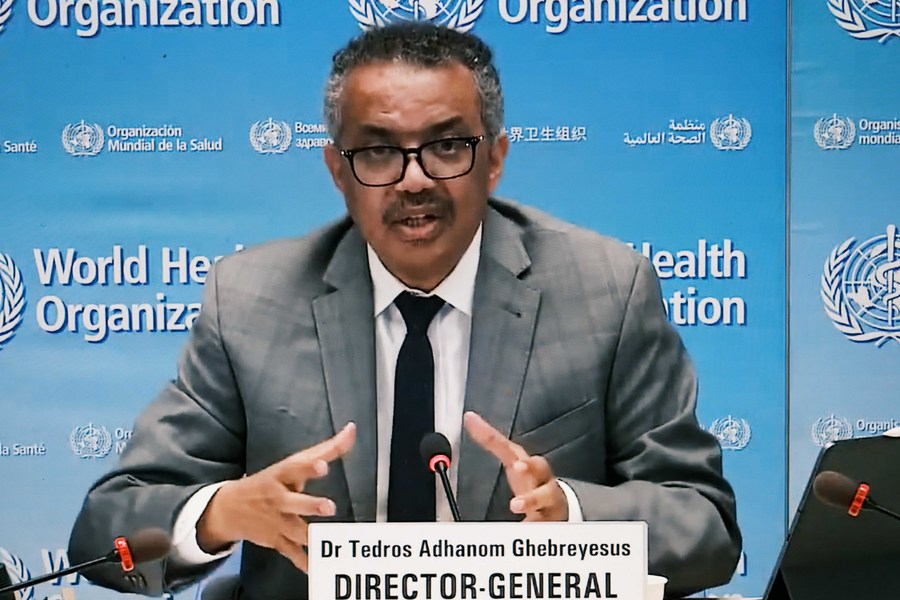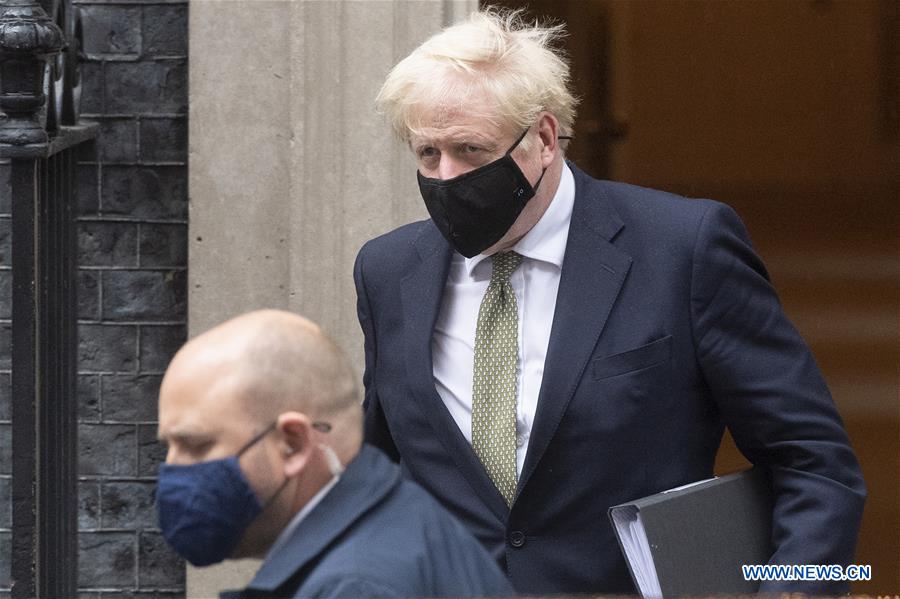
Photo taken in Brussels, Belgium on Aug. 6, 2020 shows World Health Organization (WHO) Director-General Tedros Adhanom Ghebreyesus attending an online press conference held in Geneva, Switzerland. (Xinhua/Zhang Cheng)
"Herd immunity is achieved by protecting people from a virus, not by exposing them to it."
GENEVA, Oct. 12 -- The chief of the World Health Organization (WHO) on Monday termed herd immunity against COVID-19 "scientifically and ethically problematic."
Speaking at a press briefing, WHO Director-General Tedros Adhanom Ghebreyesus said that herd immunity is a concept used for vaccination, in which a population can be protected from a certain virus if a threshold of vaccination is reached.
"For example, herd immunity against measles requires about 95 percent of a population to be vaccinated. The remaining five percent will be protected by the fact that measles will not spread among those who are vaccinated. For polio, the threshold is about 80 percent," he said.
"Herd immunity is achieved by protecting people from a virus, not by exposing them to it," he said, adding that "it has never been used as a strategy for responding to an outbreak."













